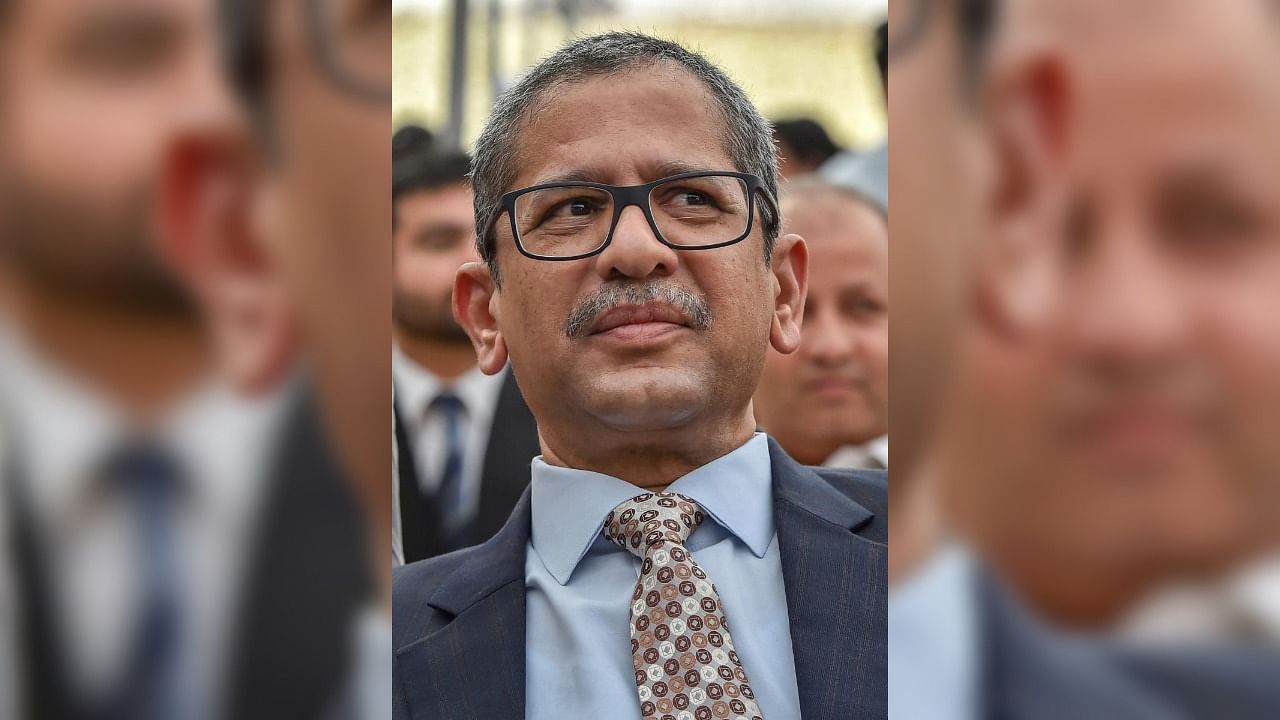
Justice Nuthalapati Venkata Ramana is set to become the next Chief Justice of India.
Born in an humble family of agriculturalists of Krishna district of Andhra Pradesh, Justice Ramana worked as a journalist for 'Enadu' paper for two years between 1979 to 1980, after completing Bachelor in Science.
He joined the legal profession as an advocate on February 10, 1983.
Justice Ramana went on to become judge of the High Court in 2000. He was elevated to the Supreme Court in 2014.
Justice Ramana is seen as a conservative judge in legal circles. He does not prefer to make much observations during the hearing of cases. In the top court, he has presided over a five-judge bench which heard of petitions related to revoking of special status of Jammu and Kashmir under Article 370 of the Constitution. He also dealt with the matter related to ban of 4G in Jammu and Kashmir and declared that access to internet was a fundamental right.
He also presided over a bench which dealt with legal questions arising out of resignation of 17 rebel MLAs of Congress and JDS of Karnataka. In a judgement, Justice Ramana said defection to another party cannot be treated as a bar for a member to contest elections again during the term of the Assembly, otherwise it would have chilling effect on legitimate dissent.
He also led a bench which heard a matter as combination of Shiv Sena, NCP and Congress parties approached the court for conducting the floor test in Maharashtra Assembly.
Justice Ramana would assume office of the CJI on April 24 and would continue till August 22, 2022.
In his tenure as SC judge, Justice Ramana courted controversy after he invited Prime Minister Narendra Modi to a family function in 2014. Just months ago his ascension as CJI, Andhra Pradesh CM's letter came accusing him of closeness with Chandrababu Naidu and trying to de-establise his government. However, the Supreme Court dismissed the complaint by in-house proceedings.
Before his appointment as judge, he practiced in the High Court of Andhra Pradesh, Central and Andhra Pradesh Administrative Tribunals and the Supreme Court in civil, criminal, constitutional, labour, service and election matters.
Justice Ramana worked as panel counsel for various government organisations, besides being Additional Standing Counsel for central government and Standing Counsel for Railways in the Central Administrative Tribunal at Hyderabad.
He also functioned as Additional Advocate General of Andhra Pradesh, before having been appointed as a permanent Judge of the Andhra Pradesh High Court on June 27, 2000.
He performed the role of Acting Chief Justice of Andhra Pradesh High Court since March 10, 2013 to May 20, 2013. He was elevated as the Chief Justice of Delhi High Court on September 2, 2013, before being appointed as a judge of the Supreme Court on February 17, 2014.
